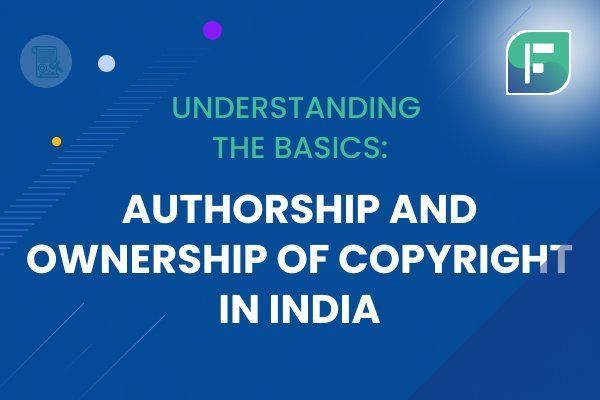Copyright is an important aspect of intellectual property law that protects the original work of creators from unauthorized use by others. In India, copyright law is governed by the Copyright Act, 1957, which sets out the rules and regulations for copyright protection in the country.
One of the key aspects of copyright law is understanding the concept of authorship and ownership of copyright. In this article, we will explore what authorship and ownership of copyright mean and how they apply in India.
What is Copyright?
Copyright is a form of intellectual property law that protects original works of authorship, including literary, dramatic, musical, and artistic works, as well as computer programs, sound recordings, and cinematograph films.
Copyright gives the creator of the work the exclusive right to reproduce, distribute, and perform the work, as well as the right to make derivative works based on the original. Copyright protection is automatic and applies from the moment the work is created.
It provides legal protection for their original works, allowing them to control how their works are used, distributed, and monetized. Copyright protection promotes creativity, innovation, and cultural development by providing creators with financial benefits and incentives to invest in new works. Additionally, it protects their reputation and is recognized globally, enabling creators to market and distribute their works across borders.
Authorship of Copyright
In India, the author of a work is the first owner of the copyright in that work. The author is the person who creates the work, whether it is a literary work, a musical composition, a painting, or any other type of original work. This means that if you write a novel, for example, you are the author of that work and you own the copyright in it.
However, in some cases, the author may not be the first owner of the copyright. For example, if the work is created by an employee in the course of their employment, the employer is considered to be the first owner of the copyright. This is known as “work made for hire” and it applies when the work is created by an employee in the course of their employment, or if the work is commissioned by someone else.
Ownership of Copyright
As mentioned above, the author is the first owner of the copyright in a work. However, ownership of copyright can be transferred or assigned to someone else. This means that the author can sell or give away their copyright to another person or entity. The transfer of ownership of the copyright must be done in writing and signed by the author or their authorised representative.
In addition to the transfer of ownership, copyright can also be licensed to others. A license is a permission granted by the copyright owner to another person or entity to use the work in a particular way.
For example, a musician may license their music to a film production company to use in a movie soundtrack. A license can be exclusive, meaning that the licensee has the exclusive right to use the work in a particular way, or non-exclusive, meaning that the licensee is one of several who have permission to use the work in the same way.
Joint Ownership of Copyright
In some cases, copyright can be jointly owned by multiple authors or owners. Joint ownership occurs when two or more people contribute to the creation of a work. For example, a song may have multiple songwriters, or a painting may have been created by two artists working together. In this case, each joint owner has an equal share in the ownership of the copyright, unless there is an agreement to the contrary.
In joint ownership, each joint owner has the right to use the work and the obligation to share any profits derived from the work. However, each joint owner also has the right to license or transfer their share of the copyright to others without the permission of the other joint owners.
Conclusion
In conclusion, copyright is an important aspect of intellectual property law that protects the original works of creators from unauthorized use by others. In India, the author of a work is the first owner of the copyright in that work, unless it is created in the course of their employment or is commissioned by someone else. Ownership of copyright can be transferred or licensed, and copyright can also be jointly owned by multiple authors or owners.





